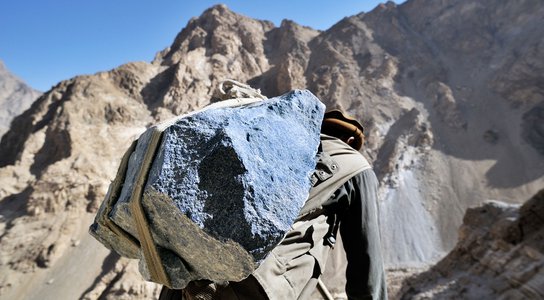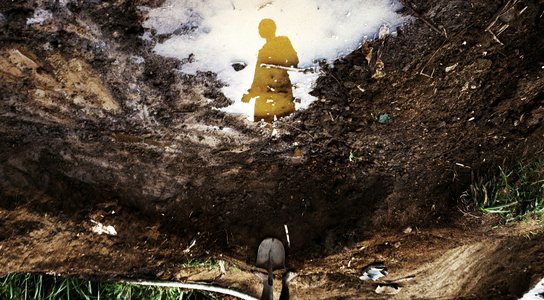The new EU law on responsible mineral sourcing is an important but half-hearted attempt to bring change to the sector, not least because many important companies are exempt, says Global Witness.
The Regulation, coming into force on 8 June, is the first of its kind to make companies responsible for their mineral supply chains globally. But its shortfalls sit awkwardly with the European Commission’s new ‘values’ based trade strategy, which promotes transparency and responsible trade as a force for sustainable development.
Emily Norton of Global Witness said: “The Regulation is a step in the right direction, but it falls well short of what is needed. The EU has chosen to ignore some of the riskiest transactions and a whole category of important companies which bring minerals into the EU. This piecemeal approach trusts most of the market to regulate itself.”
Minerals continue to finance conflict and fuel human rights abuses, bribery and money-laundering around the world, from Myanmar to Afghanistan, Colombia and the Democratic Republic of the Congo.
The new Regulation is an attempt by the EU—as the world’s largest trading bloc and a major player in the global trade in minerals—to tackle this problem. It requires importers of certain minerals to do a series of checks on their supply chains and publicly report on what they are doing.
But while the EU has chosen to regulate, it has given companies almost four years, until 2021, to start doing the basic supply chain check the law requires.
Norton said: “Companies have all the tools they need to get started now. The EU has acknowledged the urgency of this problem and discussed this law for years. Every day wasted gives predatory groups another day to profit at the expense of local communities.”
The Regulation’s mandatory requirements only capture companies that import tin, tantalum, tungsten and gold in their raw forms, as ores or metals, into the EU. This lets the vast majority of European companies involved in the trade entirely off the hook. It excludes companies importing products containing these very same minerals –such as laptops, cars or phones—into the EU. It also leaves out companies whose annual imports of these minerals fall below volume thresholds that Global Witness have warned are too high. And companies that import diamonds, cobalt, jade and other minerals are also outside scope.
Norton said: “The clock is now ticking not just for companies the EU has chosen to regulate, but for all other companies bringing minerals into the EU—in any form. The EU has chosen to trust these other companies to self-regulate. But if they don’t, we will be calling on States to do more.”
However, elements of the EU’s approach suggest more far-sighted tactics for tackling this complex issue.
Norton added: “The EU’s new law is about trying to tackle an opaque trade that too often diverts money away from the local communities that need it most, but is not by itself the fix that will bring much-needed peace and prosperity to these communities. The EU has recognised this, and has committed to an integrated approach that involves diplomatic and development measures sitting alongside the law. We welcome these combined measures, and urge the EU to take an ambitious and comprehensive approach to implementing them.”
/ ENDS
Contacts
Notes to editor:
- The Regulation applies to companies whose imports of ores or metals of tin, tantalum, tungsten, or gold into the EU exceed certain specified annual thresholds. The law will require companies to conduct “due diligence” on their supply chains broadly in line with the requirements of the Organisation for Economic Cooperation and Development’s (OECD) “Due Diligence Guidance for Responsible Supply Chains of Minerals from Conflict-Affected and High-Risk Areas.” Unlike the EU’s Regulation, this OECD Guidance applies to all mineral resources and to the entire supply chain, including companies that buy or trade products containing those minerals.
- Due diligence on mineral supply chains does not aim to discourage sourcing from fragile and high-risk areas. Rather, it seeks to encourage and facilitate a more responsible and transparent trade with these regions.
- The final text of the EU Regulation is available at: http://ec.europa.eu/trade/policy/in-focus/conflict-minerals-regulation/legal-texts-and-documents/
- For more information on Global Witness’ EU campaign, including detailed policy proposals, see: https://www.globalwitness.org/en/campaigns/conflict-minerals/conflict-minerals-europe-brief/
You might also like
-
Briefing What is Supply Chain Due Diligence?
Unless companies make sure they are trading responsibly, they risk funding serious abuses overseas.
-
Report War in the Treasury of the People: Afghanistan, lapis lazuli and the battle for mineral wealth
The Taliban and other armed groups are earning up to 20 million dollars per year from Afghanistan’s lapis mines, the world’s main source of the brilliant blue lapis lazuli stone.
-
Campaign Democratic Republic of Congo
The Democratic Republic of Congo (DRC) has an immense wealth of natural resources. But instead of driving development, these riches are benefiting predatory elites, armed groups and cowboy firms.